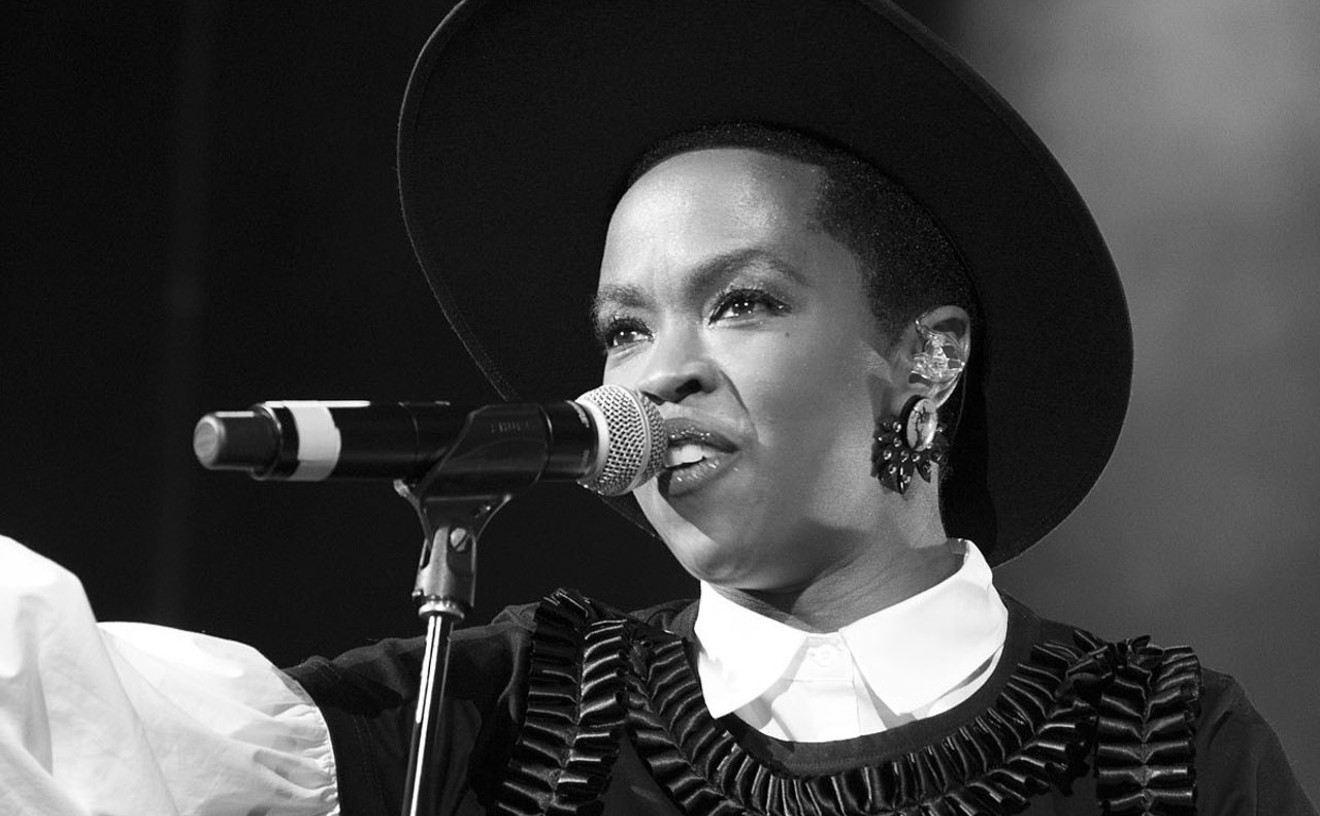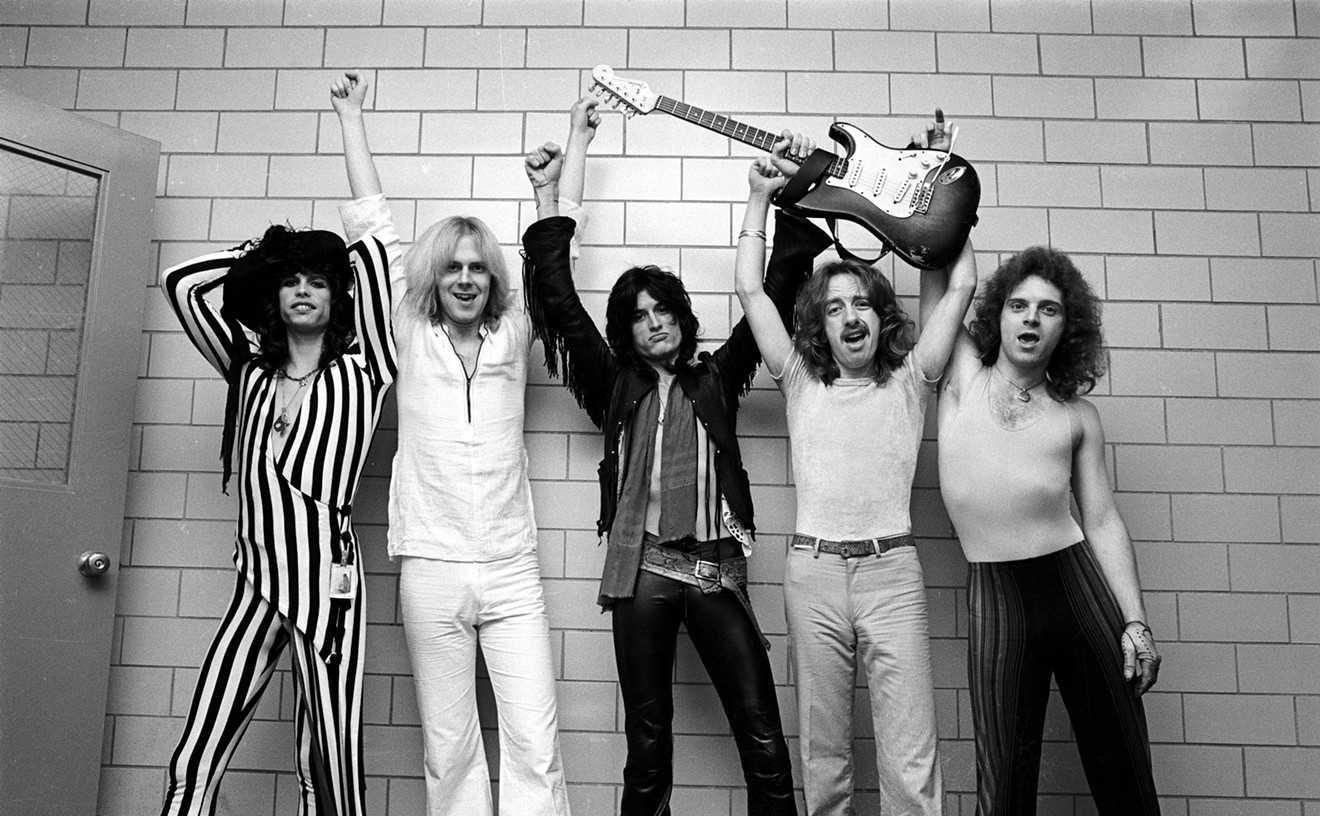As one of the most influential punk rock bands of all time, the Ramones completely redefined American music, creating a blueprint for the future of hardcore and punk. In the early 2000s, Spin Magazine rated the band the second greatest band of all time, just behind the Beatles. In 2002 the Ramones were inducted into the Rock and Roll Hall of Fame in, and in 2011, honored with a Grammy Lifetime Achievement Award.
It took awhile for the band to be recognized for its influence, but there's no denying that each of the members were ahead of their time. And many of the stories behind the writing, touring and collaborations have never really seen the light of day -- until now.
Released on January 13, Marky Ramone's autobiography Punk Rock Blitzkrieg: My Life as a Ramone, is a raw and fascinating, brutally honest look at the cultural history of punk from the front lines of one of the genre's defining bands.
Self-taught drummer Marky Ramone (aka Marc Bell) was already established on the New York music scene before joining the Ramones in 1978, and his resume reads with bands that were indeed far ahead of their time. As a teen, Marky hung out in Greenwich Village with Jimi Hendrix and Jim Morrison, and his high school band Dust (one of the first heavy metal band in the United States) signed with a major label, opened for Alice Cooper, and broke into the Billboard Top 100 chart. Marky Ramone continued onward into the first wave of punk during the early days on the CBGB scene. He worked with the Misfits, Wayne County (rock's first transsexual singer), and Richard Hell and the Voidoids (known for pioneering the "punk look"), to name a few.
When drummer Tommy Ramone asked Marky to replace him on the kit and join Joey, Johnny, and Dee Dee on the road, he started a new chapter of music history. With his iconic, high energy drumming, he helped craft songs like "Rock n Roll High School" and "I Wanna Be Sedated," and stayed in the Ramones for 15 years, nine studio albums and 1,700 shows. While the memoir focuses on a social history of the New York punk scene, it also catalogs never-before-shared touring stories, working with Phil Spector and Stephen King, and Marky's struggles with alcoholism.
Something that the book does beautifully is painting a picture of the other Ramones. He felt the significance of vocalist Joey's politics was "overblown. No matter how bossy he sometimes got in the van, the America he loved was ultimately about freedom." Dee Dee is described as a poet trapped in punk body: "He never quite found the freedom he was looking for on earth, but the ride he gave the rest of us was liberating." Joe was the punk hippie who found "an odd, self-styled freedom down in the basement of his mother's art store, wrapped it up, and gave it to the world as gift."
By 2014, all of the original four members had died, but Marky continues to tour the world and play from the Ramones' catalog, bringing the music to brand-new generations.
Currently on a book signing tour, Marky Ramone will be at Changing Hands bookstore and Crescent Ballroom on Tuesday, January 20.
Up on the Sun talked with Marky Ramone about the ultimate career goal, the punk he listens to now, and the hope there's a band in some basement working on their repertoire, "so we can eventually see another budding Dee Dee Ramone."
When you first set out to write Punk Rock Blitzkrieg, what did you want to achieve? A tell all? A cautionary tale? A historical timeline of punk?
Well, my autobiography, my life in the band and before that. And my 15 years with the group and 1,700 shows. I felt it was valid to write the book and have it be the most comprehensive and informative book about the Ramones.
After you were contacted by the publisher, you got some advice from Peter Criss from KISS about a collaborator.
A friend of his suggested that Rich Herschlag help me write the book to help keep it sounding like me. It was one of his buddies who could help write. Peter and I never really discussed writing the book, but he did have a quote in the back of the book about me that was really great.
You were on the forefront of so many legendary bands in music, from Dust to Wayne County. What characteristics within you made you gravitate towards these different, ground-breaking projects?
Well, I liked what I saw. And I wanted to be in those bands. So you work hard and you work within the song; you become friendly with the guys. At CBGB we all knew each other. And then I was able to play with the bands. It was that simple because CBGB was the place to go. First it was Wayne County, then Richard Hell and then the Ramones. But I did have a band in high school; we were one of the first heavy metal bands in America called Dust. We made it to a major label that made two albums, but then we fizzled out because we had to finish high school. We had to get that diploma on the wall because our parents wanted us to finish school. So then I went to New York and found a home at CBGB. Basically like-minded people coming together; I mean a major theme of the book is how people who were all ahead of their time sort of gravitate towards each other.
Oh yeah. Richard Hell and the Ramones. Blondie would be hanging out, Patti Smith, and so many others. Everybody had a place to play there.
It seems the book is a good balance of being honest and self-serving, which is how a rock 'n' roll memoir should be. What part was most difficult for you to write?
The most difficult part of the book... obviously the deaths of the three Ramones who were basically my brothers and bandmates. To this day I miss them. Every minute I think about them. It will never end, but you just have to think about the fun times -- even though there was sometimes animosity, you have to think of the good times and keep it in your memory, you know?
After hitting rock bottom -- which you have said happened when your car went through the window, and when you went to the second rehab facility that was like barracks -- did you have any struggles musically after getting sober?
Actually, no. I wanted to do whatever I had to do sober, so you learn when you have to confront the same situation again. What I do is just different kind of work to stay in shape physically [Marky Ramone worked as a bike messenger]. So when I got back into the music business I was fit, and able to continue to play the same way I did. Also, I never drank before I played, just after the shows and when we had time off. So when I did play I was sober, but you know; when I got back into the group things were still the same. Nothing changed.
So being around it didn't bother you at all?
Well, at one point when I got sober I lost the urge. I mean -- you know, people do what they are going to do and that's their business. If it gets too much for someone I'm sure they know there's help out there for them to go down the right path.
Looking back on your career, did you ever start out with a career goal in mind and if so, do you feel like you've reached that goal?
Yes. I wanted to play, and I got lucky. I got hooked up with the right people, the right producers, and I achieved the pinnacle: Being in the Ramones, being inducted into the Rock and Roll Hall of Fame, and getting the Grammy Award. And now I just continue to tour the world and I continue to play the music to a whole new generation. I go to places that the Ramones never ended up going to, like Russia, China, Vietnam, Dubai, and they love our Western culture. What I do now is an extension of what I did in the Ramones.
I'm sure it's pretty amazing to see people all over the world celebrate this music.
It's unbelievable. Unbelievable! I mean, they might disagree with us politically, some of the countries, but our culture they seem to love. To this day, do you have a favorite Ramones song to perform?
Oh yeah. "Rock 'n' Roll High School," for the movie and the soundtrack.
Punk never strives for perfection, but after all these years, do you strive for that now?
Well yeah, I strive for perfection, but no one is ever going to be perfect. You can strive for perfection, and continue doing that and you might become 90 percent to 95 percent perfect -- I think if you're in that number, the 90s, you're doing okay.
Going back to them theme of the Ramones being ahead of their town, and that the time they were looking forward to is now. Do you feel like there is any band out there right now like that?
Well not like the Ramones, but there are a lot of good groups that I play on my punk radio show on Sirius XM. There are good acts; you just gotta keep your ears open. I like the Gallows, the River Boat Gamblers. I like the Loved Ones. I like Anti-Flag.
Nowadays, it can be difficult to find bands that are categorized as being "ahead of their time."
Well, a lot of groups -- and this has happened since rock started -- a lot of bands follow a certain formula because it is the hit of the moment. And that could interfere with what they really are in their originality, which would hopefully come later in those groups. But you just have to be careful to not sound like anyone else, because originality is the thing that really stands out, and that's how you'll get noticed.
There's a part of the book where you tell Dee Dee that he had done for punk what Stephen King had done for fiction -- create, from scratch, images, themes and stories that drew people in because they could relate. In your mind, is there anyone out there doing that in music?
You mean like, is there another "Dee Dee" out there today, changing music or creating a new genre? Oh, I'd love to see that. I don't see it at this moment, but hopefully there's a band in some basement or studio working on their repertoire, and hopefully it is original and we will eventually see another budding Dee Dee Ramone.
What was your favorite part to write?
Oh! The making of "Rock 'n' Roll High School." Joining the Ramones. The things that happened at the Rock and Roll Hall of Fame. Working with Phil Spector. I enjoyed writing a lot of this book.
You have your own line of pasta sauce, and lovers of Italian food seem to cherish it.
Yeah -- I'm amazed! It took me six months to make. Some of it was too drippy, some was too thick. Some was too salty, or sweet. I had to walk away from it for awhile because I was getting too crazy and obsessed. So one day I came back to it, and the ingredients worked well together that I happened to use that day, and that was the result. Part of the proceeds go to Autism Speaks, which is a charity.
Where have you personally eaten the best Italian food?
Gino's in Brooklyn, and Patsy's in New York City.
Favorite dish?
Veal parmesan and chicken parmesan. Clams on the half shell. Pastas with meatballs and sausage.. sweet and hot sausage. What else.... Laughter. Waaay too many. It's a great food to bond with people over, too.
Well, who would be on your dream dinner party guest list, dead or alive?
Oh! Hmm... let's see. Dead or alive. Well, Jimi Hendrix would be one. John Lennon. I would like JFK to be at the dinner. Ah let's see.. who else... that's really...hmmm, yeah. Marlon Brando would be great. Also Keith Moon. And I guess, umm.... Anthony Bourdain!
You've done a few things with Bourdain.
Oh yes, we've eaten a few dishes together. He's a great guy.
Find any show in Metro Phoenix via our extensive online concert calendar.
9 Tips for Using A Fake ID To Get Into A Show 10 Classic Punk Records That Actually Kind of Suck The 10 Coolest, Scariest, Freakiest Songs About Heroin The 30 Most Disturbing Songs of All Time
Like Up on the Sun on Facebook or follow us on Twitter for the latest local music news and conversation.











